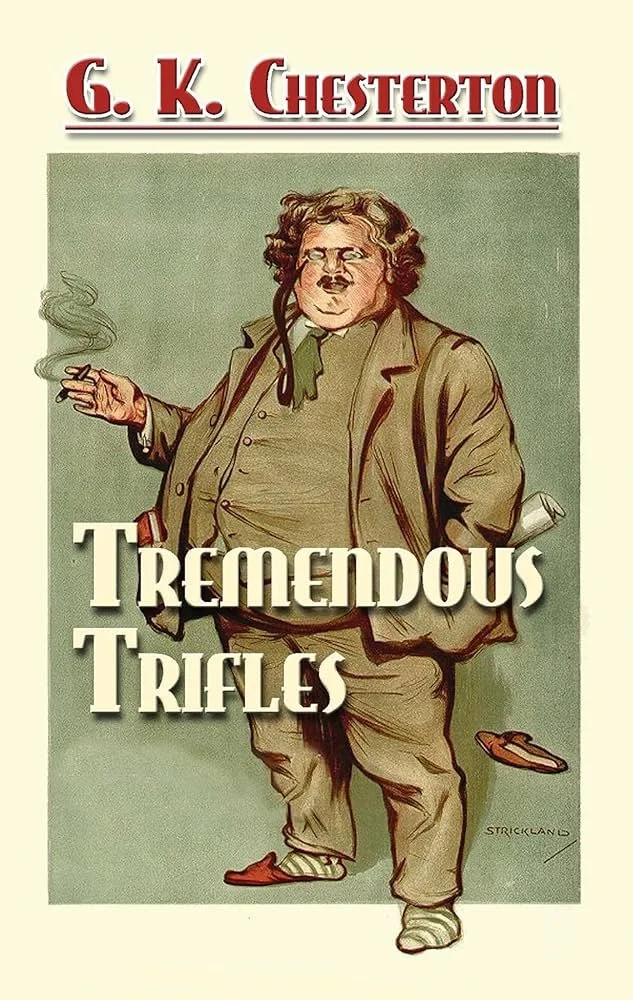G.K. Chesterton
Gilbert Keith Chesterton (1874-1936) was a man of many talents - short story writer, novelist, poet, essayist, biographer, philosopher, art critic, literary critic, Christian apologist, journalist, and editor. He is best known now for his 53 detective stories featuring Father Brown, a Catholic priest who uses Church-trained logic and a keen understanding of human behavior to solve mysteries. Chesterton had famous friendships, rivalries, and feuds with fellow writers in a Golden Age of English literature. The names alone summon a time and place: Kipling, Shaw, Wilde, Doyle, Belloc, and many others - Chesterton was in the thick of it all.
The Father Brown stories are the best place to begin with Chesterton, but the casual essays are witty and sly and fun, graced with paradox and a conversational style. Enjoy!
Tremendous Trifles
Tremendous Trifles
"The world will never starve for want of wonders, but only for want of wonder."
— G. K. Chesterton
The thirty-nine short essays that make up Chesterton's delightful book are the result of "sitting still and letting marvels and adventures settle on him like flies." Actually, the author does move around quite a bit—to Germany, France, and on foot in England when he tires of waiting for a train. Everywhere he goes, Chesterton looks at ordinary things and asks us to see how extraordinary they are: the contents of his pockets, the items in a railway station, pedestrians in the street. What appear to be trifles are actually tremendous, and he uses them as a springboard to expound on Christianity, the nuclear family, democracy, and the like with supreme clarity and wit.
The essays gathered here are a testament to G. K. Chesterton's faith—not his faith in religion or a higher power, but in the ability to discover something wonderful in the objects, the experiences, and the people that cross our paths every single day. With his unique brand of humor and insight, he demonstrates how the commonplace adds enormous value to the landscape of daily life. Full of both good sense and nonsense, Chesterton's commentaries—first published nearly a century ago—remain fresh today.
Reprint of the Sheed and Ward, New York, 1955 edition.

